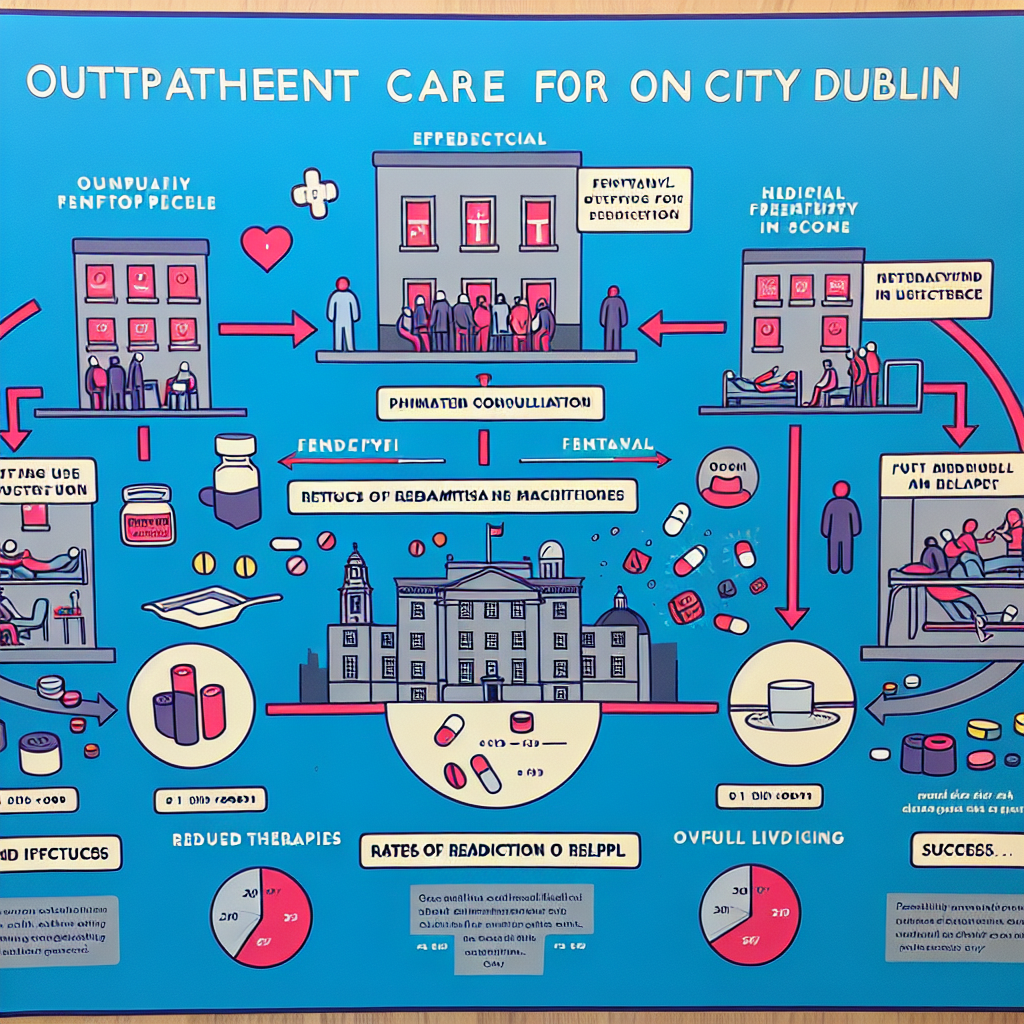-
Table of Contents
“Empowering Recovery: The Vital Role of Support Groups in Overcoming Fentanyl Addiction”
Introduction

Support groups play a crucial role in the recovery process for individuals battling fentanyl addiction. These groups provide a safe and supportive environment where individuals can share their experiences, challenges, and successes with others who understand their struggles. By fostering a sense of community and belonging, support groups help reduce feelings of isolation and stigma often associated with addiction. They offer emotional support, practical advice, and coping strategies, which are essential for maintaining sobriety. Additionally, support groups can connect individuals with resources and professional help, enhancing their overall recovery journey. Through regular meetings and peer support, these groups empower individuals to stay committed to their recovery goals and build a healthier, drug-free life.
The Importance Of Peer Support In Fentanyl Addiction Recovery
The journey to recovery from fentanyl addiction is often fraught with challenges, both physical and emotional. One of the most significant elements that can make a difference in this arduous path is the presence of peer support. Support groups play a crucial role in the recovery process, offering a lifeline to those grappling with the devastating effects of fentanyl addiction. These groups provide a safe space where individuals can share their experiences, gain insights, and draw strength from others who understand their struggles.
Peer support is invaluable because it fosters a sense of community and belonging. When individuals battling fentanyl addiction come together, they realize they are not alone in their fight. This shared experience can be incredibly empowering, as it helps to break down the isolation and stigma often associated with addiction. By connecting with others who have faced similar challenges, individuals can find solace and encouragement, which are essential components of the recovery process.
Moreover, support groups offer a platform for individuals to share their stories and listen to others. This exchange of experiences can be profoundly therapeutic. Hearing about the successes and setbacks of others can provide valuable lessons and insights. It can also instill hope, showing that recovery is possible even in the face of seemingly insurmountable obstacles. The stories of those who have successfully navigated the path to sobriety can serve as beacons of hope, inspiring others to persevere in their own journeys.
In addition to emotional support, peer groups often provide practical advice and strategies for managing addiction. Members can share coping mechanisms, discuss triggers, and offer tips for avoiding relapse. This collective wisdom can be a powerful tool in the recovery process, equipping individuals with the knowledge and skills they need to stay on track. Furthermore, the accountability that comes with being part of a support group can be a strong motivator. Knowing that others are invested in their success can encourage individuals to remain committed to their recovery goals.
Another critical aspect of peer support is the opportunity for individuals to give back. As they progress in their recovery, they can offer support and guidance to newcomers. This act of helping others can be incredibly fulfilling and can reinforce their own commitment to sobriety. It creates a cycle of support, where those who have benefited from the group can, in turn, contribute to the well-being of others. This sense of purpose and connection can be a powerful antidote to the feelings of hopelessness and despair that often accompany addiction.
Furthermore, support groups can complement other forms of treatment, such as therapy and medication. While professional help is essential, the unique benefits of peer support cannot be overstated. The empathy and understanding that come from shared experiences are something that even the most skilled therapist may not be able to provide. By integrating support groups into a comprehensive treatment plan, individuals can access a well-rounded approach to recovery that addresses both their emotional and practical needs.
In conclusion, the role of support groups in fentanyl addiction recovery is multifaceted and profoundly impactful. They provide a sense of community, emotional support, practical advice, and opportunities for personal growth. By fostering connections and offering a platform for shared experiences, support groups can inspire hope and resilience in those battling addiction. As individuals come together to support one another, they create a powerful network of strength and encouragement, proving that recovery is not only possible but achievable with the right support.
How Support Groups Facilitate Long-Term Recovery From Fentanyl Addiction
Support groups play a pivotal role in the journey of recovery from fentanyl addiction, offering a lifeline to those grappling with the profound challenges of overcoming this potent opioid. The path to long-term recovery is often fraught with obstacles, but the communal support found in these groups can make a significant difference. By fostering a sense of belonging and understanding, support groups provide an environment where individuals can share their experiences, gain insights, and build resilience.
One of the primary ways support groups facilitate long-term recovery is by creating a safe space for individuals to express their struggles and triumphs. In these groups, members can speak openly about their addiction without fear of judgment. This openness is crucial because it allows individuals to confront their issues head-on, rather than hiding them out of shame or fear. The shared experiences within the group can also help members realize that they are not alone in their struggles, which can be incredibly empowering.
Moreover, support groups offer a structured environment that can help individuals stay accountable. Regular meetings provide a routine that can be particularly beneficial for those in recovery, as it helps to establish a sense of normalcy and stability. The accountability that comes from regularly attending meetings and sharing progress can motivate individuals to stay on track with their recovery goals. Additionally, the encouragement and positive reinforcement from group members can boost self-esteem and reinforce the belief that long-term recovery is achievable.
Another significant benefit of support groups is the opportunity for members to learn from each other. Each person’s journey through addiction and recovery is unique, and the collective wisdom of the group can provide valuable insights and strategies for overcoming challenges. For instance, one member might share a coping mechanism that has been particularly effective for them, which others can then try in their own lives. This exchange of knowledge and experiences can be a powerful tool in the recovery process.
Furthermore, support groups often incorporate elements of education and skill-building into their meetings. Facilitators may provide information on topics such as managing cravings, dealing with triggers, and developing healthy coping mechanisms. These educational components can equip individuals with the tools they need to navigate the complexities of recovery. By learning new skills and strategies, members can build a stronger foundation for long-term sobriety.
In addition to the practical benefits, support groups also offer emotional support, which is essential for long-term recovery. The empathy and understanding that group members provide can help individuals feel less isolated and more connected. This emotional support can be a crucial buffer against the feelings of loneliness and despair that often accompany addiction. Knowing that there are others who genuinely care and are invested in their recovery can give individuals the strength to persevere through difficult times.
Lastly, support groups can help individuals build a network of sober friends and allies. This social network can be invaluable, as it provides a source of positive influence and encouragement. Having a community of people who are committed to sobriety can help individuals avoid situations and relationships that might jeopardize their recovery. The bonds formed in support groups can also lead to lasting friendships that extend beyond the meetings, providing ongoing support and companionship.
In conclusion, support groups play an indispensable role in facilitating long-term recovery from fentanyl addiction. By offering a safe space for expression, fostering accountability, providing educational resources, and delivering emotional support, these groups help individuals build the resilience and skills needed to maintain sobriety. The sense of community and connection that support groups provide can be a powerful force in the journey toward recovery, inspiring hope and empowering individuals to reclaim their lives from addiction.
The Role Of Family Support Groups In Fentanyl Addiction Treatment
Family support groups play a crucial role in the treatment and recovery process for individuals struggling with fentanyl addiction. These groups provide a safe and understanding environment where family members can share their experiences, gain insights, and develop strategies to support their loved ones effectively. The journey of overcoming fentanyl addiction is fraught with challenges, and having a strong support system can make a significant difference in the recovery process.
One of the primary benefits of family support groups is the sense of community they offer. Addiction often isolates individuals and their families, creating a sense of loneliness and helplessness. By participating in support groups, family members can connect with others who are facing similar struggles. This shared experience fosters a sense of belonging and reduces feelings of isolation. Knowing that they are not alone in their journey can be incredibly comforting and empowering for family members.
Moreover, family support groups provide valuable education about addiction and recovery. Understanding the nature of fentanyl addiction, its impact on the brain, and the challenges of withdrawal and recovery can help family members develop empathy and patience. These groups often invite experts to speak about various aspects of addiction, offering practical advice and evidence-based strategies for supporting their loved ones. This knowledge equips family members with the tools they need to navigate the complexities of addiction and recovery more effectively.
In addition to education, family support groups offer emotional support. The emotional toll of having a loved one addicted to fentanyl can be overwhelming. Feelings of guilt, anger, frustration, and sadness are common. Support groups provide a space where these emotions can be expressed and validated. Sharing these feelings with others who understand can be incredibly therapeutic. It helps family members process their emotions and develop healthier coping mechanisms.
Furthermore, family support groups encourage open communication within the family. Addiction often strains relationships and creates barriers to effective communication. Support groups emphasize the importance of honest and compassionate dialogue. They teach family members how to communicate their concerns and support in a non-judgmental and constructive manner. Improved communication can strengthen family bonds and create a more supportive environment for the individual in recovery.
Another significant aspect of family support groups is the focus on self-care. Supporting a loved one through addiction and recovery can be physically and emotionally draining. Family members often neglect their own needs in the process. Support groups remind them of the importance of self-care and provide strategies for maintaining their well-being. This might include setting boundaries, seeking individual therapy, or engaging in activities that bring joy and relaxation. When family members take care of themselves, they are better equipped to support their loved ones.
Lastly, family support groups can inspire hope. Recovery from fentanyl addiction is a long and challenging journey, but it is possible. Hearing success stories from other families who have navigated similar paths can be incredibly motivating. These stories serve as a reminder that recovery is achievable and that there is light at the end of the tunnel. The collective hope and resilience within these groups can be a powerful source of strength for families.
In conclusion, family support groups play an indispensable role in the treatment and recovery process for individuals struggling with fentanyl addiction. They provide a sense of community, valuable education, emotional support, improved communication, self-care strategies, and hope. By participating in these groups, family members can better support their loved ones and contribute to a more successful recovery journey.
Success Stories: Overcoming Fentanyl Addiction Through Support Groups
In the battle against fentanyl addiction, support groups have emerged as a beacon of hope for many individuals seeking recovery. These groups provide a safe and nurturing environment where people can share their experiences, gain insights, and find the strength to overcome their addiction. The success stories of those who have triumphed over fentanyl addiction through the help of support groups are both inspiring and instructive, offering valuable lessons for others on a similar journey.
One such success story is that of Sarah, who struggled with fentanyl addiction for several years. Her life had spiraled out of control, and she felt isolated and hopeless. However, everything changed when she joined a local support group. The group provided her with a sense of community and belonging that she had been missing. Through regular meetings, Sarah found herself surrounded by individuals who understood her struggles and offered unwavering support. This sense of camaraderie was instrumental in her recovery, as it helped her realize that she was not alone in her fight against addiction.
Similarly, John’s journey to recovery was marked by the pivotal role of support groups. After multiple failed attempts to quit fentanyl on his own, John decided to seek help from a support group. The group’s structure, which included sharing personal stories and discussing coping strategies, allowed John to gain new perspectives on his addiction. He learned practical tools for managing cravings and stress, which were crucial in his path to sobriety. Moreover, the encouragement and accountability provided by the group members kept him motivated and focused on his recovery goals.
Transitioning from addiction to recovery is a complex process that often requires more than just willpower. Support groups offer a multifaceted approach to recovery, addressing not only the physical aspects of addiction but also the emotional and psychological challenges. For instance, Maria’s story highlights the importance of emotional support in overcoming fentanyl addiction. Maria had been using fentanyl as a way to cope with unresolved trauma. In her support group, she found a safe space to express her feelings and confront her past. The empathy and understanding she received from her peers were crucial in her healing process, enabling her to break free from the cycle of addiction.
Furthermore, support groups often provide access to additional resources and professional help. Many groups collaborate with healthcare providers, counselors, and addiction specialists to offer comprehensive support. This holistic approach was vital for David, who benefited from the combined efforts of his support group and a dedicated addiction counselor. The group meetings complemented his individual therapy sessions, creating a robust support system that addressed all facets of his addiction. This integrated approach significantly increased his chances of long-term recovery.
The success stories of individuals like Sarah, John, Maria, and David underscore the transformative power of support groups in fentanyl addiction recovery. These groups foster a sense of community, provide emotional and practical support, and connect individuals with essential resources. By sharing their journeys and supporting one another, members of support groups create a ripple effect of hope and healing. Their stories serve as a testament to the fact that recovery is possible, and that with the right support, individuals can reclaim their lives from the grip of addiction.
Q&A
1. **What is the primary role of support groups in fentanyl addiction recovery?**
– The primary role of support groups in fentanyl addiction recovery is to provide emotional support, shared experiences, and a sense of community to individuals struggling with addiction, helping them stay motivated and committed to their recovery journey.
2. **How do support groups help individuals cope with cravings and withdrawal symptoms?**
– Support groups help individuals cope with cravings and withdrawal symptoms by offering a platform to share coping strategies, receive encouragement, and learn from others who have successfully managed similar challenges.
3. **What types of support groups are available for fentanyl addiction recovery?**
– Types of support groups available for fentanyl addiction recovery include 12-step programs like Narcotics Anonymous (NA), non-12-step groups such as SMART Recovery, and online support communities that provide virtual meetings and resources.
4. **Can family members participate in support groups for fentanyl addiction recovery?**
– Yes, family members can participate in support groups specifically designed for them, such as Nar-Anon or Al-Anon, which provide support and education to help them understand addiction and learn how to support their loved ones in recovery.
Conclusion
Support groups play a crucial role in fentanyl addiction recovery by providing emotional support, fostering a sense of community, and offering practical advice from individuals who have experienced similar struggles. These groups create a safe space for sharing experiences and challenges, which can reduce feelings of isolation and stigma. Additionally, support groups often facilitate access to resources and professional help, enhancing the overall recovery process. By promoting accountability and continuous encouragement, support groups significantly contribute to sustained sobriety and improved mental health outcomes for individuals recovering from fentanyl addiction.



